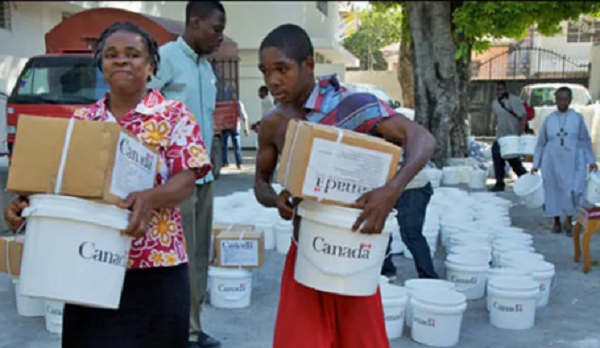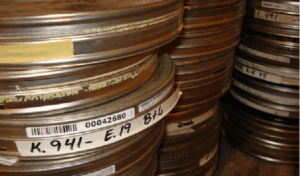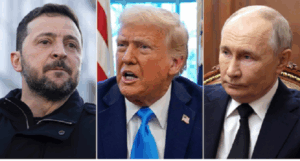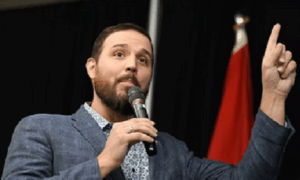‘Diverse global relationships’: Canadian aid agencies seeking boost in foreign aid after Liberal campaign largely ignored the issue
After a Liberal election campaign that largely avoided any mention of foreign aid, Canada’s humanitarian agencies are hoping to persuade Prime Minister Mark Carney that a boost in the federal aid budget would help his strategy of diversifying Canada’s trade markets.
The donor agencies are mobilizing an array of economic arguments as they push for Canada to help fill the gap left by the United States and other Western governments that have imposed drastic cuts in their foreign aid programs this year.
Mr. Carney showed little interest in the issue during the election campaign. His campaign platform said his government would maintain Canada’s international humanitarian assistance budget at no less than $800-million per year – but the humanitarian budget was as high as $1.29-billion just two years ago.
A new OECD report in April found that Canada’s foreign aid spending had declined by 8.1 per cent last year, despite Liberal promises to protect the aid budget. The OECD calculated that federal spending on aid was about $10-billion last year. Ottawa, using a different formula, reported it as $12.3-billion in the 2023-24 fiscal year, with Ukraine by far the biggest recipient. Ethiopia, Bangladesh and Haiti are among other major recipients of Canadian aid.
Mr. Carney, in the election campaign, promised that his government would not cut foreign aid – unlike the Conservatives, who vowed to cut billions of dollars from the aid budget. But he made no commitment to an increase in the overall aid budget.
The humanitarian agencies are now aiming to meet him and lobby for higher spending, arguing that it would fit with Mr. Carney’s strategy for responding to the U.S. tariff pressure by shifting away from the U.S. market.
“It is very important for us to have diverse global relationships,” said Kate Higgins, chief executive officer of Cooperation Canada, which represents more than 100 of the country’s international humanitarian and development organizations.
“International assistance and international co-operation is a really effective way for us as a country to build those relationships and to diversify the markets and countries and partnerships that we’re engaged in,” she told The Globe and Mail in an interview.
“We would like Canada to step up at this time when global needs are really profound. When other countries are retreating, this is an opportunity for Canada to step up. It’s not only the right thing to do, but it’s a strategic thing for us to do as a country.”
In a statement congratulating Mr. Carney on his election victory, Cooperation Canada and 61 Canadian aid agencies said they understood that the new government’s immediate priority will be the U.S. tariff issue and other economic concerns.
“However, Canada cannot afford to turn inward,” the groups said. “Our global engagement is vital to our economic resilience, our security, and our international credibility.”
The United States, Britain and several European countries are imposing severe cuts in their aid budgets this year, causing an estimated 40-per-cent reduction in global aid spending. This will cause millions of deaths in poor countries, largely owing to cuts in HIV programs, food aid and other vital areas, aid groups have warned.
Mr. Carney, in his election platform, identified just two areas for higher aid spending: an annual $50-million increase for FinDev, a Canadian financial institution that provides loans to private companies in the developing world, and an additional $2-million to help LGBT people who face persecution abroad.
“It’s far better than the cuts promised by the Conservatives, but it remains profoundly unambitious,” said Stephen Brown, a University of Ottawa political scientist who studies foreign aid issues.
“Globally the pendulum is swinging against foreign aid, and Canada is not immune to that,” Prof. Brown told The Globe.
Mr. Carney’s election platform called for a foreign policy review and the drafting of a “new, full foreign policy” – including international aid policy – for the first time since 2005. “The intention is to deploy more Canadian diplomats and officials abroad, to expand our trade, and to restore Canadian leadership,” the platform said.
It made no mention, however, of several foreign-policy initiatives of the Liberal government of previous prime minister Justin Trudeau, including the recently unveiled Africa strategy. Nor did it mention the Feminist International Assistance Policy, announced by the Trudeau government with great fanfare in 2017.
The feminist aid policy is probably dead, and the Africa strategy is likely to be reconsidered, Prof. Brown said.
The Liberal election platform suggests that the Carney government’s foreign policy will be largely oriented toward trade and security, he said. This emphasis, along with Mr. Carney’s background as a central bank governor, helps to explain why the promise of additional funding for FinDev’s private-sector lending was one of the few commitments he made on foreign aid, Prof. Brown said.
This article was first reported by The Globe and Mail














